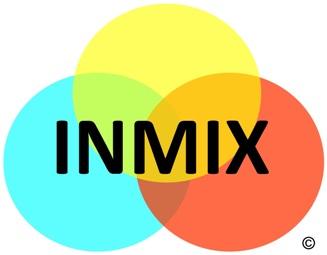Immigration in Catalonia: E Pluribus Unum (Aposta Award 2011)

Without a doubt, the management of immigration and diversity, as well as the negotiation of the resulting processes of interculturalism, is one of the greatest challenges that modern societies face at the present historical moment, especially in places that, because of international migration, have undergone significant changes in their socio-cultural and demographic composition, as is the case of Catalonia, Spain. In the Catalan context, an important subject for investigation, yet one that has received little research attention thus far, is the study of identity/sense of belonging and of processes of hybridity among immigrants and their descendants, in particular among those people who have formed mixed/bicultural and/or transnational unions and families. These types of unions and families are increasing in number as a result of growing international mobility and the globalization processes of the last few decades. This reality of “mixed” families is still largely unstudied in Catalonia and in Spain as a whole. Most of the research in this area comes from traditional or long-standing immigration countries such as the United States, Canada, the United Kingdom, and France. In Spain, interest in the issue has grown in parallel with the country’s recent and rapid transformation into a country of immigration, which has also led to a substantial increase in mixed marriages and situations of socio-cultural “mixedness.”
Traditionally, mixed marriages and hybridity have been considered a key indicator of social integration, as they have been interpreted as reflecting the degree of an immigrant’s successful settlement in the host society and the degree to which his or her social networks have expanded and diversified; moreover, such unions have been linked with social capital acquisition and have also been seen as representing evidence of the erosion of both fixed identities and ethno-cultural prejudices. More recent theories, however, have shown that processes of social incorporation, assimilation and segregation are more complex and multidirectional than had been assumed. In fact, we still know little about the scope, dynamics, meaning and social consequences of mixed unions, particularly in new countries of immigration like Spain. This project aims to deepen our understanding of this phenomenon, taking as a starting point the premise that the analysis of intermarriage, or of patterns of endogamy/exogamy (i.e., couple formation within/outside one's group or social category), sheds light on the scope of social divisions that are present within a society and on the degree of interaction that takes place between different groups. In other words, intermarriage is a “total social fact,” in that it relates to aspects of economic structure, cultural patterns, gender relations and identity processes, and, therefore, it constitutes a crucial test for identifying the social structure and the dynamics of a given society. In this sense, the knowledge derived from a thorough investigation of this issue, using both qualitative and quantitative methods, will not only be helpful at an explanatory level but also may be illuminating and applicable at the level of policy and practice. In this latter respect, a fundamental objective of the project is to initiate and facilitate knowledge transfer between research producers, government/policy-makers and civil society, for which a set of training and consulting activities has been designed and in which diverse stakeholder institutions will participate. This project’s ultimate objective is to produce information that will inform and beneficially (re)orient the management of interculturalism in Catalonia, thus helping to shape the society of the future: a civic community that is diverse and plural but also cohesive: E Pluribus Unum (“Out of many, one”).
Dan Rodríguez-García, the principal investigator of the project, is Associate Professor in the Department of Social and Cultural Anthropology at the Universitat Autònoma de Barcelona (UAB). He is the Director of the Research Group on Immigration, Mixedness, and Social Cohesion (INMIX), and is senior research fellow of the Migration Research Group (GRM) at UAB, which is recognized as a Consolidated Research Group by the Government of Catalonia. He is also a member of the European Commission-funded Network of Excellence on International Migration, Integration and Social Cohesion (IMISCOE), and he participates regularly in knowledge transfer regarding immigration and diversity issues for different government institutions, foundations and associations, as well as for the media. His work in the field of intermarriage and transnational families is pioneering in Spain, and for this he has obtained a number of research awards, including an Award of Excellence for Research in the Social Sciences (UAB, 2009).
For more information, click here
References
“Beyond Assimilation and Multiculturalism: A Critical Review of the Debate on Managing Diversity”. Dan Rodríguez-García, 2010. Journal of International Migration and Integration 11(3): 251-271.
“Mixed Marriages and Transnational Families in the Intercultural Context”. Dan Rodríguez-García, 2006. Journal of Ethnic and Migration Studies 32(3): 403-433.

